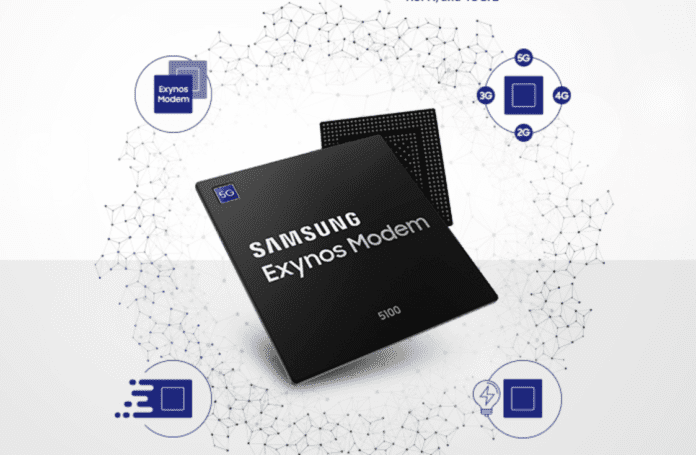5G modem based on 3GPP Rel. 15, Samsung says
In the run-up to 5G service launches in the U.S. later this year, we’ve seen a wave of ecosystem announcements geared toward supporting commercialization of the next-generation of cellular. For AT&T and Verizon, 2018 launches will use high-band millimeter wave spectrum. That has led to several recent device-facing announcements that will let customers connect to early 5G networks. Qualcomm earlier this summer put out a millimeter wave antenna module that can fit into a smartphone form factor. Soon after Verizon announced its mobile 5G launch would come with device support from the Motorola moto z3, which will bring to market a 5G “mod” containing the Qualcomm modules and X24 gigabit LTE modem and X50 5G modem.
And this week Sprint said it has been working with LG on a 5G smartphone that would come available with Sprint’s network launch in the first half of 2019.
Now electronics and network infrastructure giant Samsung has announced its entry into the 5G modem space with the 10-nanometer Exynos 5100, which the company said is “fully compatible” with 3GPP’s 5G New Radio (NR) specification.
As it relates to 5G, Samsung is working with Verizon on its fixed wireless residential broadband offering by providing a range of equipment for the projects in Sacramento and Houston, according to the network infrastructure vendor. For those projects, Samsung said it’s supplying 5G radios and indoor and outdoor consumer premise equipment. The vendor touted an integrated baseband and radio head, which weighs 20 pounds and is described by the company as “simple to deploy and install.”
Samsung is also an integral part of Sprint’s 5G roadmap, as well as the carriers efforts to enhance its LTE offering by putting its 2.5 GHz spectrum into service and deploying massive multiple-input, multiple-output (MIMO) antennas.
According to Samsung exe Inyup Kang, “As the industry prepares the shift toward 5G, Samsung will continue to drive growth of innovative ideas and new services in mobile applications and other emerging industries.”
Samsung used the Exynos in its prototype form to test over-the-air 5G NR testing.

